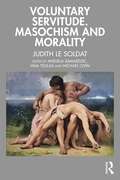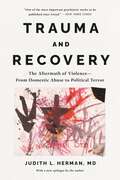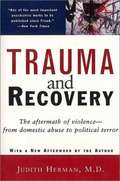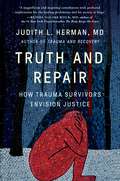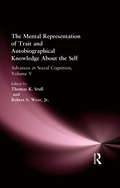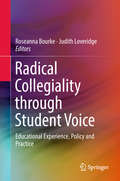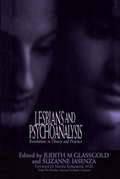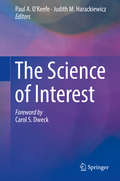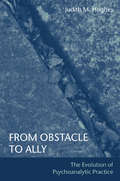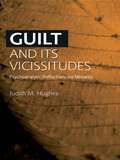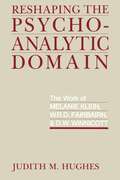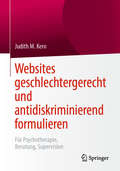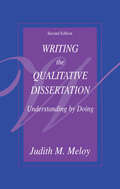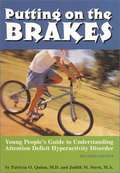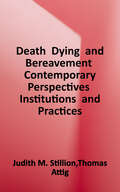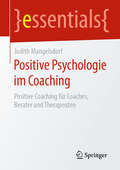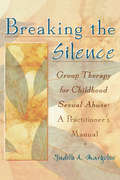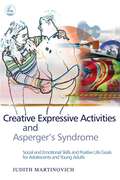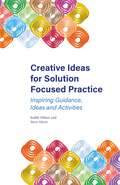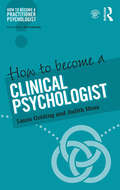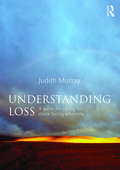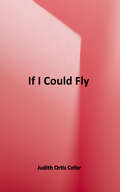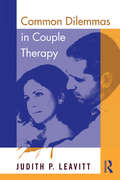- Table View
- List View
Voluntary Servitude. Masochism and Morality
by Judith Le SoldatLe Soldat’s Voluntary Servitude. Masochism and Morality presents an extraordinary analysis of masochism, the subject, death drive and sexual discourse inspired by Freudian drive theory, philosophy, gender theory, political science and mythology.This book will certainly evoke the reader’s curiosity, but even more than that it will encourage readers critical reflection on the clandestine defensive formations between the psyche and reality that, in the author’s view, obscure pleasure principle by corrupting the death drive and the body. Le Soldat presents an unprecedented formulation in psychoanalytic literature to date, one of incomparable significance not only for our clinical work, but also for critical theoretical reflection on society and its vicissitudes. As a result of their defensive stances, we encounter ‘masochistic subjects of servitude’ enclosed in a world of wars, economical rivalries, regressive brutality of consumerism, religious dependency and political mania.Drawing on the work of Freud and Adorno, and balancing theoretical and clinical material, this is essential reading for psychoanalysts, psychotherapists, and anyone who seeks to understand the concept of voluntary servitude.
Trauma and Recovery: The Aftermath of Violence, from Domestic Abuse to Political Terror
by Judith Lewis HermanWhen Trauma and Recovery was first published in 1992, it was hailed as a groundbreaking work. In the intervening years, it has become the basic text for understanding trauma survivors. By placing individual experience in a broader political frame, Judith Herman argues that psychological trauma can be understood only in a social context. Drawing on her own research on incest, as well as on a vast literature on combat veterans and victims of political terror, she shows surprising parallels between private horrors like child abuse and public horrors like war. A new epilogue reviews what has changed--and what has not changed--over two decades. Trauma and Recovery is essential reading for anyone who seeks to understand how we heal and are healed.
Trauma and Recovery: The Aftermath of Violence--from Domestic Abuse to Political Terror
by Judith Lewis Herman<p>When <i>Trauma and Recovery</i> was first published in 1992, it was hailed as a groundbreaking work. In the intervening years, Herman's volume has changed the way we think about and treat traumatic events and trauma victims. In a new afterword, Herman chronicles the incredible response the book has elicited and explains how the issues surrounding the topic have shifted within the clinical community and the culture at large. <p><i>Trauma and Recovery</i> brings a new level of understanding to a set of problems usually considered individually. Herman draws on her own cutting-edge research in domestic violence as well as on the vast literature of combat veterans and victims of political terror, to show the parallels between private terrors such as rape and public traumas such as terrorism. <p>The book puts individual experience in a broader political frame, arguing that psychological trauma can be understood only in a social context. Meticulously documented and frequently using the victims' own words as well as those from classic literary works and prison diaries, <i>Trauma and Recovery</i> is a powerful work that will continue to profoundly impact our thinking.</p>
Truth and Repair: How Trauma Survivors Envision Justice
by Judith Lewis HermanFrom one of America&’s most influential psychiatrists, an &“extraordinary&” and &“profound&” (New York Times) manifesto for reimagining justice for survivors of sexual trauma The #MeToo movement brought worldwide attention to sexual violence, but while the media focused on the fates of a few notorious predators who were put on trial, we heard far less about the outcomes of those trials for the survivors of their abuse. The conventional retributive process fails to serve most survivors; it was never designed for them. Renowned trauma expert Judith L. Herman argues that the first step toward a better form of justice is simply to ask survivors what would make things as right as possible for them. In Truth and Repair, she commits the radical act of listening to survivors. Recounting their stories, she offers an alternative vision of justice as healing for survivors and their communities. Deeply researched and compassionately told, Truth and Repair envisions a new path to justice for all.
The Mental Representation of Trait and Autobiographical Knowledge About the Self: Advances in Social Cognition, Volume V (Advances in Social Cognition Series #Vol. 5)
by Robert S. Wyer Thomas K. Srull Stanley B. Klein Judith LoftusIf there is one topic on which we all are experts, it is ourselves. Psychologists depend upon this expertise, as asking people questions about themselves is an important means by which they gather the data that provide much of the evidence for psychological theory. Personal recollections play an important role in clinical theorizing; people's thoughts, feelings, and beliefs provide the principal data for attitudinal research; and judgments of one's traits and descriptions of one's goals and motivations are essential for the study of personality. Yet despite their long dependence on self-report data, psychologists know very little about this basic resource and the processes that govern it. In spite of the importance of the self as a concept in psychology, virtually no empirically-tested representational models of self-knowledge can be found. Recently, however, several theoretical accounts of the representation of self-knowledge have been proposed. These models have been concerned primarily with the factors underlying a particular type of self knowledge -- our trait conceptions of ourselves. The models all share the starting assumption that the source of our knowledge of the traits that describe us is memory for our past behavior. The lead article in this volume reviews the available models of the processes underlying trait self-descriptiveness judgments. Although these models appear quite different in their basic representational assumptions, exemplar and abstraction models sometimes are difficult to distinguish experimentally. Presenting a series of studies using several new techniques which the authors believe are effective for assessing whether people recruit specific exemplars or abstract trait summaries when making trait judgments about themselves, they conclude that specific behavioral exemplars play a far smaller role in the representation of trait knowledge than previously has been assumed. Finally, the limitations of social cognition paradigms as methods for studying the representation of long-term social knowledge are discussed, and the implications of the research for both existing and future social psychological research are explored.
Radical Collegiality through Student Voice: Educational Experience, Policy and Practice
by Roseanna Bourke Judith LoveridgeThis book celebrates the rights of the child, through including student voice in educational matters that affect them directly. It focuses on the experiences of children and young people and explores how our educational policies, practices and research endeavours enable educators to help young people tell their own stories. The respective chapters illustrate how listening to young people can help them attain new positions of power, even though doing so often creates discomfort and requires a radical change on the part of the adult establishment. Further, the book challenges researchers, teachers and practitioners to reconsider how students are involved in research and policy agendas, and to what extent radical collegiality can create fundamental and positive changes in the lives of these learners. In recent decades, greater attention has been paid across policy, practice and research discourses to involving children more meaningfully and actively in decisions about their participation in both formal and informal educational settings. The book’s goal is to illustrate how researchers have systematically involved students in the pursuit of a richer understanding of educational experiences, policy and practice through the eyes and ears of young people, and through their own cultural lens.
Detachment and Enabling
by Rebecca D. Chaitin Judith M KnowltonDetachment and Enabling combines two classic, user-friendly texts designed for loved ones of addicts and alcoholics.Detachment and Enabling combines two classic, user-friendly texts designed for loved ones of addicts and alcoholics. After you have done all you can to help a chemically dependent person and he or she continues to drink or use, it's time to detach. Detachment tells us how we can continue to love someone who is chemically dependent and, at the same time, no longer focus on that person's behavior. It is about taking back our lives.Enabling describes the problems we can encounter when we focus on the alcoholic or addict in order to keep peace at any price. The authors encourage us to consider if we are really helping the alcoholic or ourselves when we prevent the alcoholic from feeling the true consequences of his or her actions.About the authors: Judith M. Knowlton has a degree in psychology from Oberlin College and her master's in Group Process from Seton Hall University. A recovering alcoholic, she is a Certified Alcoholism Counselor with then years/' experience. Judy has been instrumental in starting several alcoholism programs in northern New Jersey. She is the founder of Action for Sobriety Groups, president of Quotidian, and the mother of three adult children.Rebecca D. Chaitin is a writer and editor, part-time alcoholism counselor, and recovering alcoholic. Born in Virginia, she is graduate of Hollins College and worked for various New York publishers, including Time-Life Books, before she began freelancing in the early 1970s. She now lives in Montclair, New Jersey, with her three teenagers.
Lesbians and Psychoanalysis: Revolutions in Theory and Practice
by Judith M. Glassgold Suzanne IasenzaPsychoanalytic theories of lesbian development epitomize the difficulty in liberating psychoanalysis from the past. Psychoanalytic theory has traditionally adopted a clear position that a lesbian orientation represented some form of psychological abnormality. Thankfully-- but only very recently-- some influential feminist leaders have begun to rethink issues of gender and sexual orientation, removing heterosexuality from its privileged position as normal. In "Lesbians and Psychoanalysis", Judith M. Glassgold and Suzanne Iasenza bring together twenty-six of these pioneers in the field of lesbian psychoanalytic theory. Through insightful chapters based on years of clinical experience, each author helps to redefine psychoanalytic theory by reinventing its foundations from an affirmative perspective so that it better represents all peoples. "Lesbians and Psychoanalysis" addresses several topics of emerging concern including multicultural diversity, self-disclosure, homophobia, transference/countertransference issues, bisexuality, and the changing nature of lesbian sexuality. In addition, the authors examine the influence of stigma on human development. In three sections-- Past, Present, and Future-- the authors in turn critique past theory, discuss current issues in therapy, and describe new directions in theory and practice. This is a book that is sure to appeal not only to members of the psychoanalytic community but also to all those who are interested in gay and lesbian studies, feminism, and psychology.
The Science of Interest
by Paul A. O'Keefe Judith M. HarackiewiczThis exceptional volume analyzes the intricate roles interest plays in cognition, motivation and learning, and daily living, with a special focus on its development and maintenance across life domains. Leading experts discuss a spectrum of interest ranging from curiosity to obsession, and trace its functions in goal-setting, decision-making, self-regulation, and performance. New research refines the current knowledge on student interest in educational settings and the social contexts of interest, with insights into why interest levels change during engagement and in the long run. From these findings, contributors address ways to foster and nurture interest in the therapy room and the classroom, for optimum benefits throughout life. Among the topics covered: #65533; Embedding interest within self-regulation. #65533; Knowledge acquisition at the intersection of situational and individual interest. #65533; The role of interest in motivation and engagement. #65533; The two faces of passion. #65533; Creative geniuses, polymaths, child prodigies, and autistic savants. #65533; The promotion and development of interest. A robust guide to a fascinating area of study, The Science of Interest synthesizes the field's current knowledge of interest and indicates future directions. Its chapters contribute depth and rigor to this growing area of research, and will enhance the work of researchers in education, psychologists, social scientists, and public policymakers.
From Obstacle to Ally: The Evolution of Psychoanalytic Practice
by Judith M. HughesFrom Obstacle to Ally explores the evolution of the theory and practice of psychoanalysis through an investigation of historical examples of clinical practice. Beginning with Freud's experience of the problem of transference, this book is shaped around a series of encounters in which psychoanalysts have managed effectively to negotiate such obstacles and on occasion, convert them into allies. Judith Hughes succeeds in bringing alive the ideas, clinical struggles and evolving practices of some of the most influential psychoanalysts of the last century including Sandor Ferenczi, Anna Freud, Melanie Klein, Wilfred Bion, Betty Joseph and Heinz Kohut. Through an examination of the specific obstacles posed by particular diagnostic categories, it becomes evident that it is often when treatment fails or encounters problems that major advances in psychoanalytic practice are prompted. As well as providing an excellent introduction to the history of fundamental psychoanalytic concepts, From Obstacle to Ally offers an original approach to the study of the processes that have shaped psychoanalytic practice as we know it today and will fascinate practising psychoanalysts and psychotherapists.
Guilt and Its Vicissitudes: Psychoanalytic Reflections on Morality
by Judith M. HughesHow do psychoanalysts explain human morality?Guilt and Its Vicissitudes: Psychoanalytic Reflections on Morality focuses on the way Melanie Klein and successive generations of her followers pursued and deepened Freud's project of explaining man's moral sense as a wholly natural phenomenon.With the introduction of the superego, Freud laid claim to the study of moral development as part of the psychoanalytic enterprise. At the same time he reconceptualized guilt: he thought of it not only as conscious, but as unconscious as well, and it was the unconscious sense of guilt that became a particular concern of the discipline he was founding. As Klein saw it, his work merely pointed the way. Judith M. Hughes argues that Klein and contemporary Kleinians went on to provide a more consistent and comprehensive psychological account of moral development. Hughes shows how Klein and her followers came to appreciate that moral and cognitive questions are complexly interwoven and makes clear how this complexity prompted them to extend the range of their theory.Hughes demonstrates both a detailed knowledge of the major figures in post-war British psychoanalysis, and a keen sensitivity to the way clinical experience informed theory-building. She writes with vigor and grace, not only about Freud and Klein, but also about such key thinkers as Riviere, Isaacs, Heimann, Segal, Bion and Joseph. Guilt and Its Vicissitudes speaks to those concerned with the clinical application of psychoanalytic theory and to those interested in the contribution psychoanalysis makes to understanding questions of human morality.
Reshaping the Psychoanalytic Domain: The Work of Melanie Klein, W.R.D. Fairbairn, and D.W. Winnicott
by Judith M. HughesTracing the line of succession from Sigmund Freud, through Melanie Klein to Fairbairn and Winnicott, Judith Hughes demonstrates the internal development of the British school of psychoanalysis and the coherence of its legacy. Both lay reader and professional will find the book illuminating.
The Holocaust and the Revival of Psychological History
by Judith M. HughesWhy did men and women in one of the best educated countries in the Western world set out to get rid of Jews? In this book, Judith M. Hughes focuses on how historians' efforts to grapple anew matters of actors' meanings, intentions, and purposes have prompted a return to psychoanalytically informed ways of thinking. Hughes makes her case with fine-grained analyses of books by Hugh Trevor-Roper, Ian Kershaw, Daniel Goldhagen,Saul Friedländer, Christopher Browning, Jan Gross, Hannah Arendt, and Gitta Sereny. All of the authors pose psychological questions; the more astute among them shed fresh light on the Holocaust - without making the past any less disturbing.
Websites geschlechtergerecht und antidiskriminierend formulieren: Für Psychotherapie, Beratung, Supervision
by Judith M. KeroDas vorliegende Buch erörtert die (Aus)Wirkungen und die Notwendigkeit geschlechtergerechten und antidiskriminierenden Sprachhandelns und beleuchtet dieses im psychosozialen Behandlungs- und Beratungskontext. Sprache ist wirkmächtig und identitätsstiftend. Sie stellt das primäre professionelle Werkzeug der in diesem Feld Tätigen dar. Folglich ist ein kompetenter und achtsamer Umgang für eine bewusste und genderreflektierte Kommunikation unumgänglich und sollte zu den Grundkompetenzen der Professionist_innen zählen. Basierend auf den Befunden einer umfassenden sprachfokussierten diskursanalytischen Studie zum Sprachgebrauch von Psychotherapeut_innen, Berater_innen und Supervisor_innen in ihren Internetauftritten bietet die Autorin im praktischen Teil als Umsetzungshilfe eine Checkliste zur Erstellung geschlechtergerechter bzw. antidiskriminierender Texte in professionellen Internetauftritten an.
Writing the Qualitative Dissertation: Understanding by Doing
by Judith M. MeloyThe purpose of this book is to share, in rich detail, an understanding of how it feels and what it means to do qualitative research, and to provide support for doctoral students who choose this form of inquiry for their dissertation research.
Putting on the Brakes (Revised Edition): Young People's Guide to Understanding Attention Deficit Hyperactivity Disorder
by Patricia O. Quinn Judith M. SternExplains what attention deficit disorder is and how to treat it, discussing the cognitive and emotional aspects, what the medication options are, how to maintain positive relations with friends, and how to do well at school.
Death, Dying, and Bereavement: Contemporary Perspectives, Institutions, and Practices
by Judith M. Stillion Thomas AttigDelivers the collective wisdom of foremost scholars and practitioners in the death and dying movement from its inception to the present. Written by luminaries who have shaped the field, this capstone book distills the collective wisdom of foremost scholars and practitioners who together have nearly a millennium of experience in the death and dying movement. <p><p>The book bears witness to the evolution of the movement and presents the insights of its pioneers, eyewitnesses, and major contributors past and present. Its chapters address contemporary intellectual, institutional, and practice developments in thanatology: hospice and palliative care; funeral practice; death education; and caring of the dying, suicidal, bereaved, and traumatized. With a breadth and depth found in no other text on death, dying, and bereavement, the book disseminates the thinking of prominent authors William Worden, David Clark, Tony Walter, Robert Neimeyer, Charles Corr, Phyllis Silverman, Betty Davies, Therese A. Rando, Colin Murray Parkes, Kenneth Doka, Allan Kellehear, Sandra Bertman, Stephen Connor, Linda Goldman, Mary Vachon, and others. Their chapters discuss the most significant facets of early development, review important current work, and assess major challenges and hopes for the future in the areas of their expertise. <p><p>A substantial chronology of important milestones in the contemporary movement introduces the book, frames the chapters to follow, and provides guidance for further, in-depth reading. The book first focuses on the interdisciplinary intellectual achievements that have formed the foundation of the field of thanatology. The section on institutional innovations encompasses contributions in hospice and palliative care of the dying and their families; funeral service; and death education. The section on practices addresses approaches to counseling and providing support for individuals, families, and communities on issues related to dying, bereavement, suicide, trauma, disaster, and caregiving. An Afterword identifies challenges and looks toward future developments that promise to sustain, further enrich, and strengthen the movement. <p><p>KEY FEATURES: - Distills the wisdom of pioneers in and major contributors to the contemporary death, dying, and bereavement movement - Includes living witness accounts of the movement's evolution and important milestones - Presents the best contemporary thinking in thanatology -Describes contemporary institutional developments in hospice and palliative care, funeral practice, and death education -Illuminates best practices in care of the dying, suicidal, bereaved, and traumatized.
Positive Psychologie im Coaching: Positive Coaching für Coaches, Berater und Therapeuten (essentials)
by Judith MangelsdorfDieses essential bietet eine Einführung in die wachstumsorientierte Prozessbegleitung durch Ansätze und Methoden der Positiven Psychologie. Es gibt einen Überblick über die Grundlagen des Positive Coachings in Ergänzung zu anderen lösungsorientierten Verfahren. Sie lernen sowohl die theoretischen Grundlagen des Positive Coachings als auch die konkreten Ansätze zur wachstumsorientierten Begleitung in den verschiedenen Phasen des Coachingprozesses kennen. Anhand wissenschaftlicher Konzepte der Positiven Psychologie und praktischer Methoden wird dargestellt, wie aktuelle Herausforderungen von Klienten genutzt werden können, um zu Potenzialentfaltung und persönlichem Wachstum beizutragen.
Breaking the Silence: Group Therapy for Childhood Sexual Abuse, A Practitioner's Manual
by Judith MargolinA program you can use for time limited clients suffering from sexual abuse!Breaking the Silence: Group Therapy for Childhood Sexual Abuse guides you through initial establishment and group formation to its termination. The step-by-step approach outlines themes and issues common to this population, raises pertinent questions, and highlights common pitfalls or problem areas in conducting therapy. You’ll discover innovative ways to work with survivors of childhood sexual abuse by addressing these key therapy issues: issues of trust, sexuality, and disclosure family dynamics emotional expression transference/countertransference male survivors group sessions the impact of abuse a concise fifteen-session, time-limited, psycho-educational group therapy program for adult survivors of sexual abuseThe program planning approach described in Breaking the Silence allows you to adapt the program to meet your individual clients’needs. The concise fifteen-session, time-limited psycho-educational group therapy program for adult survivors of sexual abuse is designed to therapeutically address the long-term sequelae associated with a past history of child abuse. The literature review of childhood sexual abuse treatment, along with this program and the invaluable sections on male survivors, sexuality, and other areas dealing with the emotional repercussions of childhood sexual abuse, are invaluable sources of information for helping survivors develop and maintain healthy relationships and balanced lives.
Creative Expressive Activities and Asperger's Syndrome: Social and Emotional Skills and Positive Life Goals for Adolescents and Young Adults
by Judith MartinovichIndividuals with Asperger's Syndrome (AS) benefit from a positive, affirming support of their individuality. This forward-looking book focuses on building individual strengths and resilience, rather than modifying perceived weaknesses, through individualized therapy within a group context. Integrating psychological and educational theory with a variety of creative therapies, Judith Martinovich combines activities such as art making, drama, music, puppetry, yoga and photography with conventional cognitive behavioral interventions to support individuals with AS. The different activities complement and reinforce each other and are designed to address specific traits of the autism spectrum to aid skills development. Although created primarily for use with adolescents and young adults, the practical and versatile activities can be adapted for different age and skill levels, objectives and settings. Informed by contemporary research, they meet the objectives of a framework of principles drawn from Positive Psychology and Social and Emotional Learning. Creative Expressive Activities and Asperger's Syndrome is a comprehensive resource for parents as well as teachers, social workers, psychologists and arts therapists who wish to link therapeutic goals with creative activities for people with or without Asperger's Syndrome.
Creative Ideas for Solution Focused Practice: Inspiring Guidance, Ideas and Activities
by Judith Milner Steve MyersExploring creative ways to implement solution focused practice, this book is packed full of ideas to inspire ways of working with clients which focus on their strengths as a means to finding solutions. Outlining how and why strengths-based interviewing for solutions is effective, the book provides a wealth of different ways to apply key solution focused techniques. With exercises, sample questions and top tips for tricky situations, the authors show how to apply creative methods in a variety of different settings and with different service user groups. Suitable for use with children and adults, this accessible book will offer exciting ideas for those new to solution focused working as well as more experienced practitioners looking for inspiration.
How to Become a Clinical Psychologist (How to become a Practitioner Psychologist)
by Laura Golding Judith MossClinical Psychology is a very popular and competitive career path for psychology students. This practical and accessible guide contains all the information and advice required by those considering pursuing a career in the field. How to Become a Clinical Psychologist provides a clear overview of a career in clinical psychology, with chapters examining areas such as the educational and work experience requirements for selection, the doctoral training programmes and the personal qualities and attributes necessary for the profession. The training process is described and the wide range of career options post-qualification are outlined, supported with testimonials and first-hand accounts from clinical psychologists, current trainees and those aspiring to this career. Practical advice and examples are given throughout the guide and a wide range of real-life examples bring the realities of this challenging yet rewarding career to life. Written by established clinical psychologists who have extensive clinical experience in the NHS and in the selection and training of doctoral trainees, this book provides valuable information on the educational, vocational and personal requirements for the career. The perfect guide for anyone interested in clinical psychology, How to Become a Clinical Psychologist is an indispensable resource for A-Level students, undergraduates considering the discipline and anyone considering a career in this popular and fascinating profession. This book is one of seven in the "How to Become a Practitioner Psychologist" series, each covering a different psychology career. The other titles in the series can be found here: http://www.routledgetextbooks.com/textbooks/howtopsy/
Understanding Loss: A Guide for Caring for Those Facing Adversity
by Judith MurrayLoss and consequent grief permeates nearly every life changing event, from death to health concerns to dislocation to relationship breakdown to betrayal to natural disaster to faith issues. Yet, while we know about particular events of loss independently, we know very little about a psychology of loss that draws many adversities together. This universal experience of loss as a concept in its own right sheds light on so much of the work we do in the care of others. This book develops a new overarching framework to understand loss and grief, taking into account both pathological and wellbeing approaches to the subject. Drawing on international and cross-disciplinary research, Judith Murray highlights nine common themes of loss, helping us to understand how it is experienced. These themes are then used to develop a practice framework for structuring assessment and intervention systematically. Throughout the book, this generic approach is highlighted through discussing its use in different loss events such as bereavement, trauma, chronic illness and with children or older people. Having been used in areas as diverse as child protection, palliative care and refugee care, the framework can be tailored to a range of needs and levels of care. Caring for people experiencing loss is an integral part of the work of helping professions, whether it is explicitly part of their work such as in counselling, or implicit as in social work, nursing, teaching, medicine and community work. This text is an important guide for anyone working in these areas.
If I Could Fly: With Characters from an Island Like You
by Judith Ortiz CoferWhen fifteen-year-old Doris's mother, a professional singer, returns to Puerto Rico and her father finds a girlfriend, Doris cares for a neighbor’s pigeons and relies on friends as she begins to find her own voice and wings.
Common Dilemmas in Couple Therapy
by Judith P. LeavittCommon Dilemmas in Couple Therapy addresses four common problems that couples therapists face everyday in their offices – problems that leave therapists exhausted, drained, challenged, alive, racing, and on edge. These dilemmas encompass not only the difficult challenges therapists face everyday, but also the passions and profound disappointments of human intimate partnerships. The purpose of this book is not only to explore and give case illustrations of these dilemmas, but also to give therapists strategies to use and help them understand and handle their own profound experiences while doing this work.
